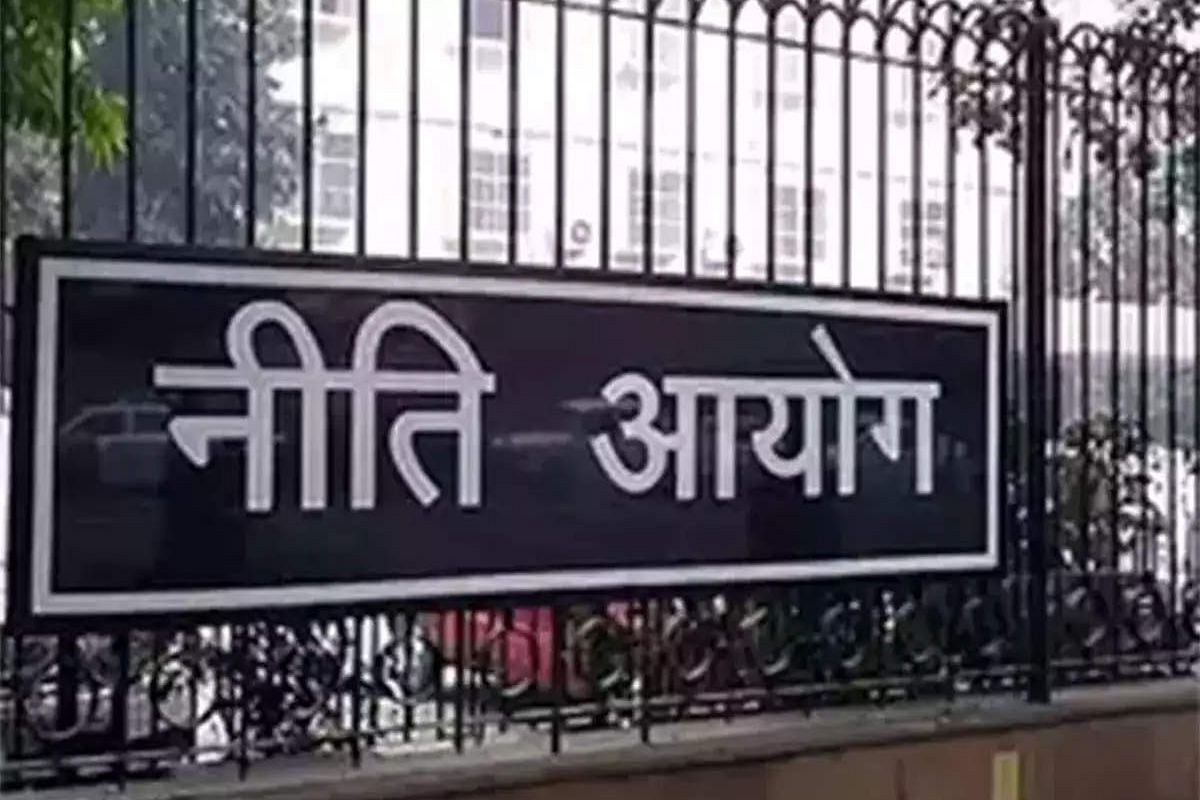News Brief
NITI Aayog Recommends New Flagship Scheme For Holistic Urban Development
- The report suggests improving urban planning governance structure and streamlining urban planning institutions.

NITI Aayog.
NITI Aayog published the final “Reforms in Urban Planning Capacity in India” report on 16 September, prepared by an advisory committee constituted for this purpose. The committee recommends 10 specific policy interventions to be taken at different levels to revamp the current urban governance in the country.
According to the report, India is currently home to 11 per cent of the world’s urban population, which is higher than most developed countries. Moreover, urban growth is expected to contribute to 73 per cent of the total population increase by 2036. The report observed that despite being a critical aspect of governance, urban planning has not been given proportional importance.
The suggestions given in the report mainly relate to improving the urban planning governance structure and streamlining urban planning institutions. It also recommends the introduction of a new scheme.
500 Healthy Cities Programme Scheme
As per the report, over 52 per cent of the statutory towns lack any kind of master plan. This means that more than half of India’s cities do not have plans for the next 20 years, when urbanisation is expected to peak.
The 500 Healthy Cities Programme would be a central sector scheme operational for a period of five years. Under this scheme, 500 cities would be selected after consultation by the Ministry of Housing and Urban Affairs (MoHUA) and state governments. The main components of the scheme include the preparation of spatial multi-sectoral vision plans by states and Constitution and functionalisation of the metropolitan planning committees and district planning committees.
According to the report, development control regulations in various cities were formulated several decades ago and have not adapted to the changing times. Therefore, it recommends a sub-scheme for the 500 cities for ‘Preparation/Revision of Development Control Regulations’. The interventions under this sub-scheme would include assessment of current development regulations, assessment of cost of infrastructure and propose changes to the existing development regulations.
Building Human Resources Capacity
Noting that at present, not even one planner is available per city or town in the states’ town and country planning departments, the committee has suggested various measures to improve the human resource capacity of urban planning.
Firstly, it suggests the filling up of 42 per cent of the 3,945 sanctioned posts which are lying vacant and additionally sanction 8,268 town planners’ posts as lateral entry positions.
It also asks states to amend their recruitment rules ensure that the essential qualification, particularly at the entry-level positions of town planners is updated to the relevant masters, bachelor’s degree (MTech, MPlan, BTech or BPlan) or integrated degree to ensure that people with the right skills only are recruited.
Apart from fresh and qualified recruitments, the committee advises continuous capacity building interventions for town planning staff. It also recommends short term training programmes for city level elected officials on “Economic and Social Benefits of Urban Planning”.
The committee also proposes the strengthening of existing centres of excellence (CoEs) established by MoHUA to regularly build the skills and expertise of urban functionaries.
Restructuring Institutions
According to the committee, due to multiplicity of organisations dealing with planning of land and sectors like water, sewerage and solid waste, siloes have been created with overlapping functions. This leads to a lack of accountability, interdepartmental incoordination, delays, resource wastage, etc. Therefore, the committee proposes a restructuring of urban government institutions for which a high-powered committee may be constituted by the state government to look into it.
It also recommends the creation of another committee at the state level for regularly reviewing and updating planning legislations. Further, it states that such a committee must have a compulsory component of citizen outreach.
Other Recommendations
Apart from the above recommendations, the committee asks governments to take active steps to encourage and develop private sector participation by adopting fair processes for procuring technical consultancy services and empanelment of private consultancy services. It also suggests measures to improve the current educational set-up for urban planning courses.
Support Swarajya's 50 Ground Reports Project & Sponsor A Story
Every general election Swarajya does a 50 ground reports project.
Aimed only at serious readers and those who appreciate the nuances of political undercurrents, the project provides a sense of India's electoral landscape. As you know, these reports are produced after considerable investment of travel, time and effort on the ground.
This time too we've kicked off the project in style and have covered over 30 constituencies already. If you're someone who appreciates such work and have enjoyed our coverage please consider sponsoring a ground report for just Rs 2999 to Rs 19,999 - it goes a long way in helping us produce more quality reportage.
You can also back this project by becoming a subscriber for as little as Rs 999 - so do click on this links and choose a plan that suits you and back us.
Click below to contribute.
Latest